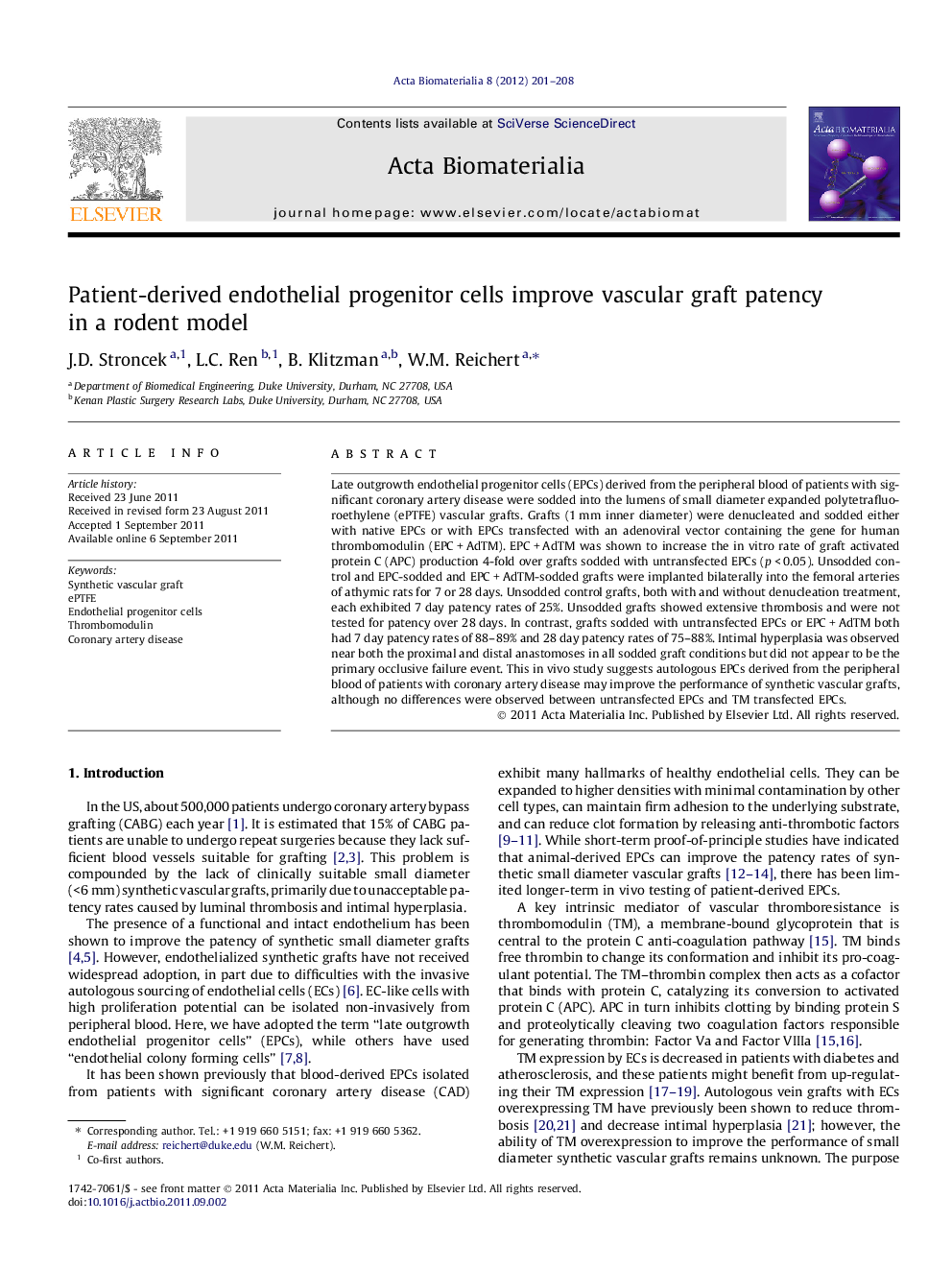| Article ID | Journal | Published Year | Pages | File Type |
|---|---|---|---|---|
| 10160087 | Acta Biomaterialia | 2012 | 8 Pages |
Abstract
Late outgrowth endothelial progenitor cells (EPCs) derived from the peripheral blood of patients with significant coronary artery disease were sodded into the lumens of small diameter expanded polytetrafluoroethylene (ePTFE) vascular grafts. Grafts (1 mm inner diameter) were denucleated and sodded either with native EPCs or with EPCs transfected with an adenoviral vector containing the gene for human thrombomodulin (EPC + AdTM). EPC + AdTM was shown to increase the in vitro rate of graft activated protein C (APC) production 4-fold over grafts sodded with untransfected EPCs (p < 0.05). Unsodded control and EPC-sodded and EPC + AdTM-sodded grafts were implanted bilaterally into the femoral arteries of athymic rats for 7 or 28 days. Unsodded control grafts, both with and without denucleation treatment, each exhibited 7 day patency rates of 25%. Unsodded grafts showed extensive thrombosis and were not tested for patency over 28 days. In contrast, grafts sodded with untransfected EPCs or EPC + AdTM both had 7 day patency rates of 88-89% and 28 day patency rates of 75-88%. Intimal hyperplasia was observed near both the proximal and distal anastomoses in all sodded graft conditions but did not appear to be the primary occlusive failure event. This in vivo study suggests autologous EPCs derived from the peripheral blood of patients with coronary artery disease may improve the performance of synthetic vascular grafts, although no differences were observed between untransfected EPCs and TM transfected EPCs.
Related Topics
Physical Sciences and Engineering
Chemical Engineering
Bioengineering
Authors
J.D. Stroncek, L.C. Ren, B. Klitzman, W.M. Reichert,
